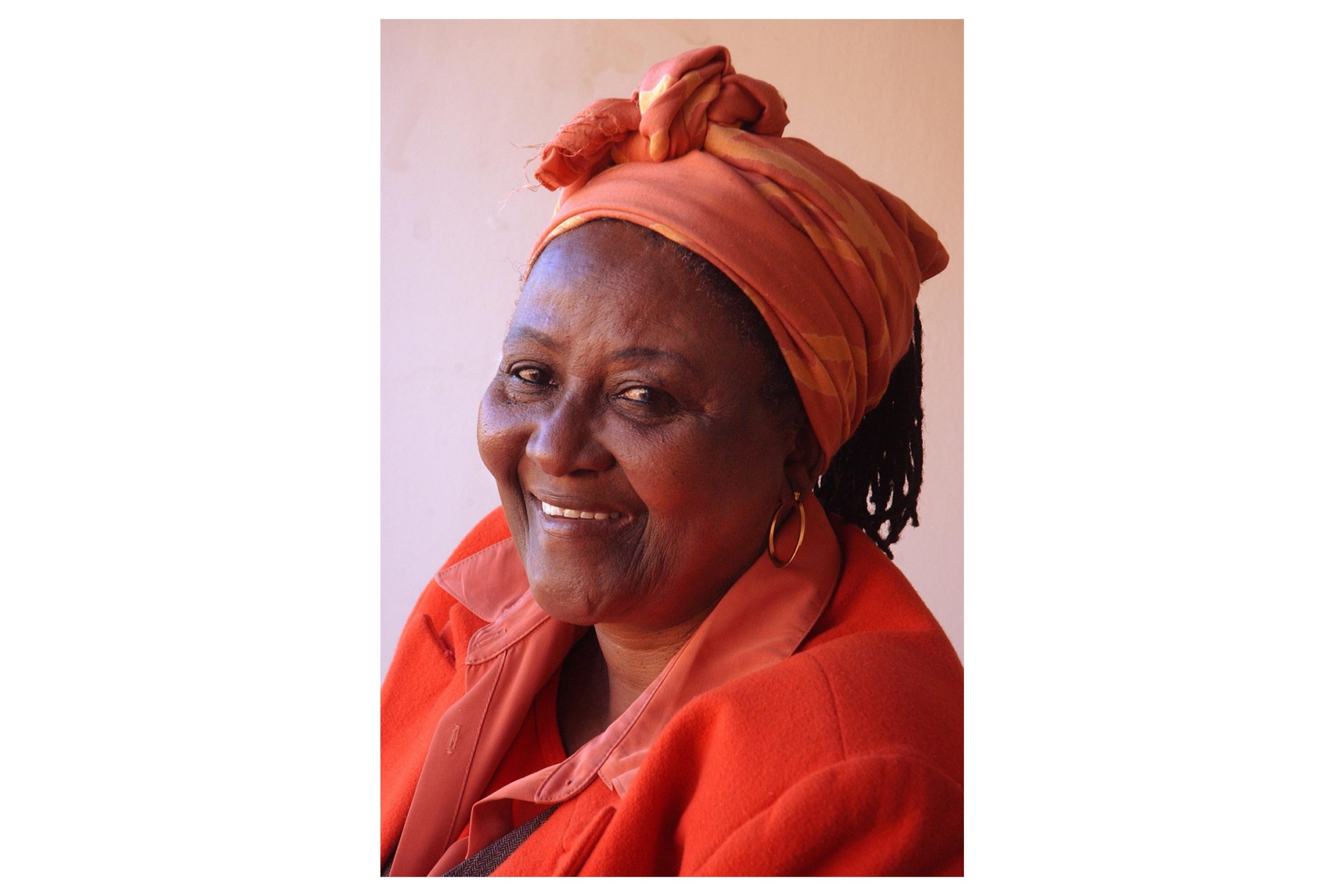Nomhle Nkonyeni, theatre matriarch and pioneer
Actor, director and activist Ma’Mpangela wanted to give back to her hometown of New Brighton and sow the seeds of theatre, so the legacy of South African stories could flourish.
Author:
16 July 2019

Outwardly, Eastern Cape-born actor Nomhle Nkonyeni looked like an elderly woman. But a glance into her eyes revealed a youthful fire. In June, when President Cyril Ramaphosa awarded her silver in the National Order of Ikhamanga, this gifted, committed and experienced performer commented that South Africans must write their own stories, because it is these stories that will take youngsters off the streets. She died on 10 July 2019 from heart complications, aged 77.
A household face because of her roles on TV and film, Nkonyeni performed in series such as Gaz’lam, Mzansi, Society, Scandal! and Tsha Tsha. Her film work included Red Dust (2004), Skin (2008) and Sew the Winter to My Skin (2018), among others. Her stage debut was in 1961. She was 19. The Eastern Cape in general and New Brighton in particular was a hotbed of theatre at the time. She worked alongside Winston Ntshona, Mulligan Mbikwana, Norman Ntshinga, Vuyelwa Ntshona, John Kani and Athol Fugard, cofounding Port Elizabeth’s Serpent Players Drama Group.
In 1981, long before it was legal for a black actor to perform on an apartheid South African stage, Nkonyeni debuted in the play of Elsa Joubert’s novel Poppie Nongena. Titled Die Swerfjare van Poppie Nongena, it tells the story of a black South African woman negotiating her way through pass laws, forced removals and the Sharpeville massacre. Over the years, Nkonyeni’s theatrical repertoire was vast and varied, incorporating Greek antiquity and contemporary storytelling.
Theatrical legacy
Forging associations with arts projects all over the country, including Benoni-based Sibikwa and the Eastern Cape’s Isithebe Drama Group, Nkonyeni gave generously of her enthusiasm. Her plans to leave a legacy were close to her heart, and her relationships with arts entities, from the National Arts Festival in Makhanda to New Brighton’s impoverished citizens, were rich with theatre seeds sown.
Nkonyeni was recognised not only for her work in the arts. Her daughter Thabang was murdered by her boyfriend in 2009, and never quite recovering from the horror of this loss, Nkonyeni took up the cudgels to be an activist against femicide in this country.
One whose directing skills were described as “motherly”, Nkonyeni was loved for her humility: it was not beyond her to listen to the opinion of young collaborators, who were often terrified of her reputation. But she was no walkover. One collaborator remembers her saying: “Not kum, ndingu Nomhle Nkonyeni mna.” (“That won’t fly with me, I am Nomhle Nkonyeni.”)
No tolerance for ignorance
In 2006, a 20-year anniversary of Wathint’ Abafazi, Wathint’ Imbokodo (You Strike a Woman, You Strike a Rock) was hosted by the National Arts Festival. A play about women and resistance in South Africa, it was originally penned by Phyllis Klotz and its first cast, Thobeka Maqhutyana, Nomvula Qosha, Xola September, Poppy Tsira and Itumeleng wa-Lehulere. At the time of its 2006 revival, the Eastern Cape MEC for Arts and Culture, Noxolo Abrahams-Ntantiso, criticised the work as “obscene”, because it used street language, which crudely described the plight of the impoverished. Nkonyeni was fiercely outspoken against the MEC’s claims, vociferously upholding the work’s importance.
Born on 9 April 1942, Nkonyeni studied at Newell High School in New Brighton and the University of Winchester in Hampshire. The recipient of numerous awards over her 55 years in theatre, she received the coveted SA Film and Television Award for lifetime achievement in 2016.
In spite of her enthusiasm to formally create a proactive legacy foundation, Sis Hlehle, as she was fondly known by family, was never one for formality for formality’s sake. As a child, she insisted on wearing trousers, breaking modesty codes because pants were more practical than skirts. She loved people. Her hospitality was instinctive: she would not let a guest leave her home hungry.
No waste of god-given talent
At the time of her Ikhamanga award, Aggrey Road in New Brighton was renamed in her honour. “When I am no more,” she said at the time, “I want to leave a young girl behind who will be able to tell our African stories. There is an abundance of talent here … most of the talent in Johannesburg comes from the Eastern Cape … I don’t want God to ask me when I get up there what I’ve done with the talent he’s given me.”
Ma’Mpangela, as she was fondly known, lost her only brother, Nceba Nkonyeni, an anti-apartheid activist, in 1990. She leaves her son Teboho, daughter-in-law Nonkqubela Maliza and four grandchildren, hundreds of industry friends and millions of fans.
Memorial services in Nkonyeni’s honour are on 17 July 2019 at Port Elizabeth’s Nangoza Jebe Hall at 9.30 am and Johannesburg’s Market Theatre at 5 pm. Her funeral is on 19 July at New Brighton’s Arthur Wellington Methodist Church.
